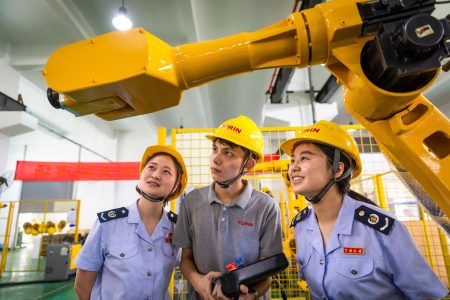The Role of AI in Transforming Cancer Care
The cancer care industry continues to face significant financial challenges, according to data highlighted by the American Cancer Society. In the United States, the average cost for a patient to receive cancer treatment is around $150,000, often more than four times that of other common medical conditions, such as heart disease or diabetes. Despite rising costs, AI is providing innovative solutions that not only address financial barriers but also ensure improved patient outcomes.
One of the most promising applications of AI in cancer care is its role in early detection. AI-driven systems are significantly enhancing the accuracy of.localized breast and lung cancer diagnoses, enabling earlier-stage treatment and thereby reducing treatment costs. For example, at Christ Hospital, AI has drastically improved lung cancer detection, with nearly 70% of cases identified at the early stages compared to the national average of 46%. This approach supports data-driven decision-making, which can lead to personalized treatment plans that minimize unnecessary therapies and improve patient survival rates, all while lowering Overall medical expenses.
AI-driven personalized treatment plans further reduce financial burdens by identifying the most effective therapies for individual patients. For instance, ArteraAI, an AI platform, offers advanced predictive modeling that determines how best to address cancer treatment, avoiding suboptimal or overly aggressive therapies. This approach ensures that treatments are tailored to the patient’s specific needs, reducing risks such as mortality and improving life expectancy. Additionally, Simple AI facilitates the development of ARTIGO, a technology that allows for the customization of treatment plans, helping to reduce unnecessary medical interventions and further lowering costs.
AI tumor surgery is another breakthrough that is transforming cancer care. Prop BIOSys’ AI-powered surgical technology offers real-time monitoring of cancellations and situations during operations, enabling surgeons to expedite procedures and alleviate the strain on hospital resources. This technology leverages AI to provide precise data on the patient’s condition, reducing the need for regular imaging procedures and standardizing the timeline for surgeries, all of which aim to lower the overall cost of care for patients on cancer treatment.
From diagnosis to management, AI is playing an increasingly pivotal role in improving cancer care. From providing early detection and treatment plans to optimizing surgical workflows and reducing out-of-pocket costs, AI is playing a transformative role in bridging the financial gap between researchers, payers, and patients. For example, Aiton biosysytes’ TempShield wearable technology addresses a growing concern about preventable infections due to cancer-related complications. This device uses AI to monitor the body’s temperature in real time, enabling early detection of hospitalization and infection, thereby saving lives by preventing serious complications.
Ultimately, AI is reshaping cancer care at every level, from early diagnosis and personalization to surgical efficiency and cost-saving. By leveraging data, technology, and advanced algorithms, AI is making treatment more affordable, improving outcomes, and reducing the significant financial burden on patients. As AI continues to evolve, it will undoubtedly play even greater roles in narrowing the gap between the lives of cancer patients and the pecuniary burdens looming from thisSie’s relentless pursuit of cancer care.
In conclusion, AI is not just an engineering marvel but also a game-changer in addressing the challenges of cancer care. From early detection and personalized treatment plans to surgical efficiency, AI’s transformative potential continues to expand, ensuring that more lives are saved while minimizing the financial strain on oncologists and their patients. With this, we stand on one pathway toward a safer, more affordable, and more impactful journey toward cancer cure.










